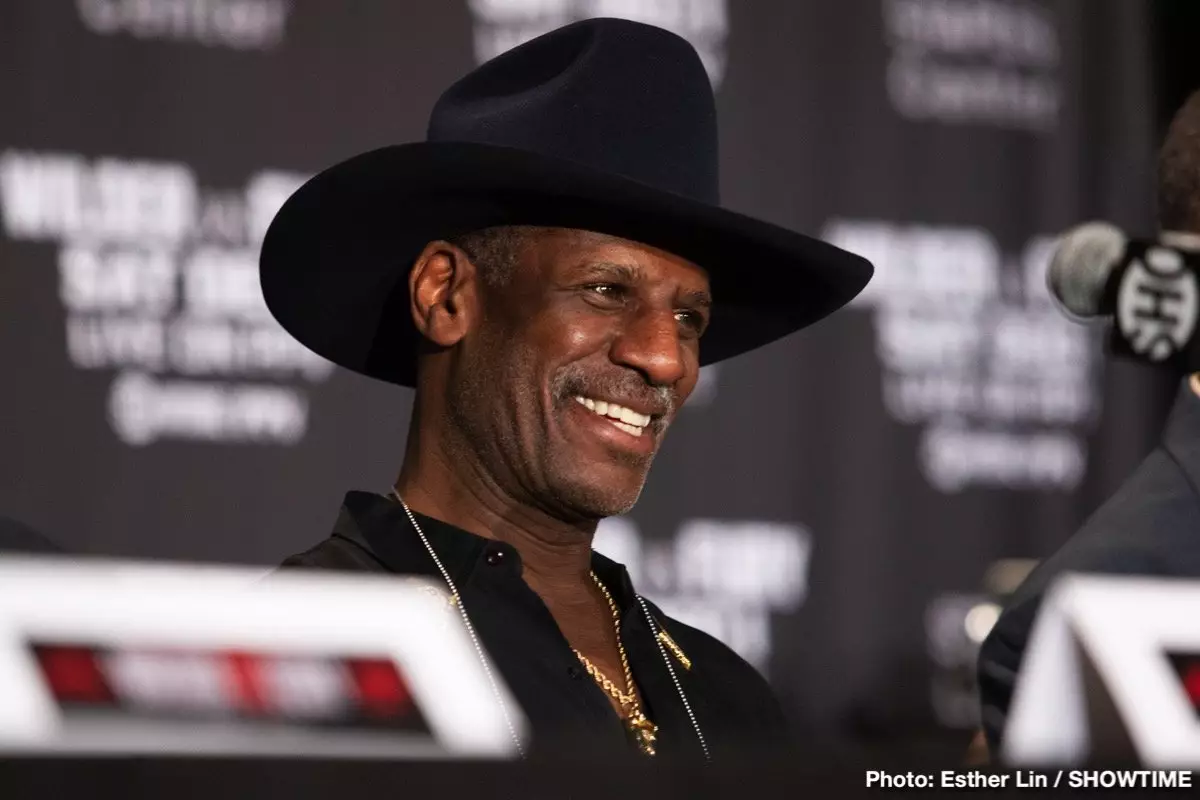Michael Spinks is often overshadowed by a singular moment in his boxing career—the infamous 91 seconds of his loss to Mike Tyson. This lightning-quick knockout has left many observers with a skewed perception of Spinks’s legacy, reducing a two-division champion’s contribution to the sport to merely a side note in the history of heavyweight boxing. His remarkable achievements, especially in the light-heavyweight and heavyweight divisions, deserve a more nuanced understanding that takes into account both his successes and the circumstances surrounding that fateful fight.
Spinks earned the nickname “Jinx” due to his unconventional fighting style and his uncanny ability to confuse opponents. Before the Tyson clash, he had already made history by becoming the undisputed light-heavyweight champion and then transitioning to heavyweight, where he captured the title from Larry Holmes. These accomplishments alone merit recognition. Spinks’s technical skills, speed, and instinctive ability to read fights set him apart as one of the elite boxers of his era. His striking victories against formidable fighters—including Holmes—should be celebrated rather than cast aside as mere preludes to an ignoble defeat.
The narrative that surrounds Spinks often limits itself to the Tyson fight, framing it as a definitive end to his career. However, such a narrow lens fails to capture a complete picture of the man and his craft. Spinks’s ability to navigate the boxing world and hold titles in two different weight classes highlights his versatility and commitment to the sport.
The anticipation leading up to the Mike Tyson fight on June 27, 1988, was electric. Many believed Spinks had the skill set necessary to challenge Tyson and potentially upset the odds. However, the subsequent outcome—a swift and devastating knockout—shocked fans and analysts alike. Spinks’s claim that Tyson was “on steroids” during this fight introduces a new layer to the conversation, one that raises questions about the integrity of that bout as well as the sports landscape at the time.
In an interview, Spinks expressed his awareness of Tyson’s supposed steroid use, a statement likely to elicit skepticism given the lack of mainstream discourse on the topic during Tyson’s reign. It raises the question: Was the fear surrounding the fight more than just mental? Was it a genuine battle against an opponent who may have had an unfair advantage? Though no conclusive evidence has surfaced to substantiate Spinks’s claims, the suggestion opens a Pandora’s box concerning performance-enhancing drugs in boxing—an issue that continues to plague the sport.
Following that evening in Las Vegas, Spinks made the decision to retire from boxing. For him, the loss was not just devastating; it was a matter of promise fulfilled and a vow made to himself long before the fight. He declared that losing would signify the end of his career, and he stuck to that sentiment. This self-imposed exile from the sport is quite telling. It seems Spinks associated his worth as a fighter intrinsically with that singular moment in the ring.
Moreover, Spinks’s reflection on a rematch with Tyson reveals layers of self-awareness. He intimated that even a second chance against Tyson would not have altered the outcome—an insight demonstrating his understanding of the fighter’s power and skill. However, such humility, while admirable, leaves much to consider about the chaotic nature of that era in boxing, rife with explosive personalities and unpredictable outcomes.
It’s time for boxing fans and historians to reassess the legacy of Michael Spinks. While the Tyson bout is a pivotal moment in his career, it should not eclipse the significance of his achievements and fighting spirit. Spinks deserves recognition not solely as a cautionary tale of a swift defeat but rather as a formidable boxer who exemplified resilience and artistry inside the ring.
The narrative around Spinks should transform from one merely defined by loss to one characterized by his remarkable journey as a champion. His accomplishments in the boxing world tell a more compelling story—one that serves as a reminder of the complexity of athletic legacy, where triumph and tragedy coexist, forging the profound depth of a sportsman’s career. The boxing world needs to celebrate Michael Spinks not just as a victim of circumstance but as a champion whose life in the ring was marked by its extraordinary peaks and valleys.

